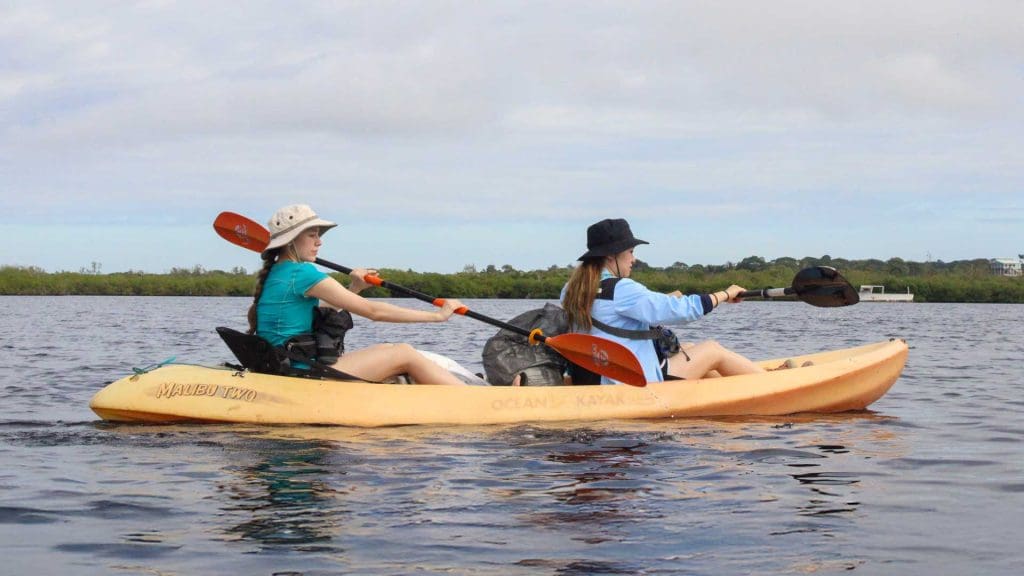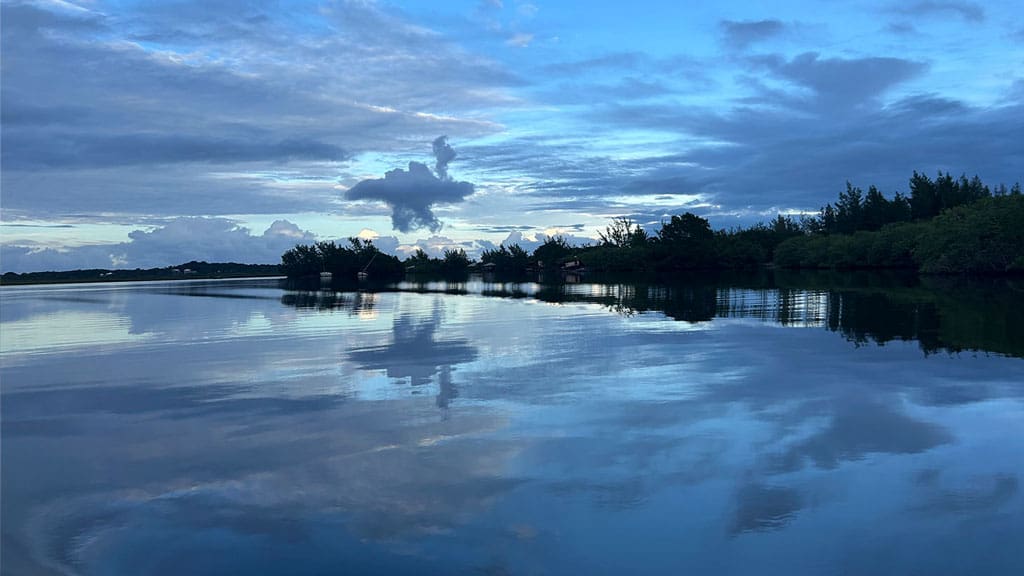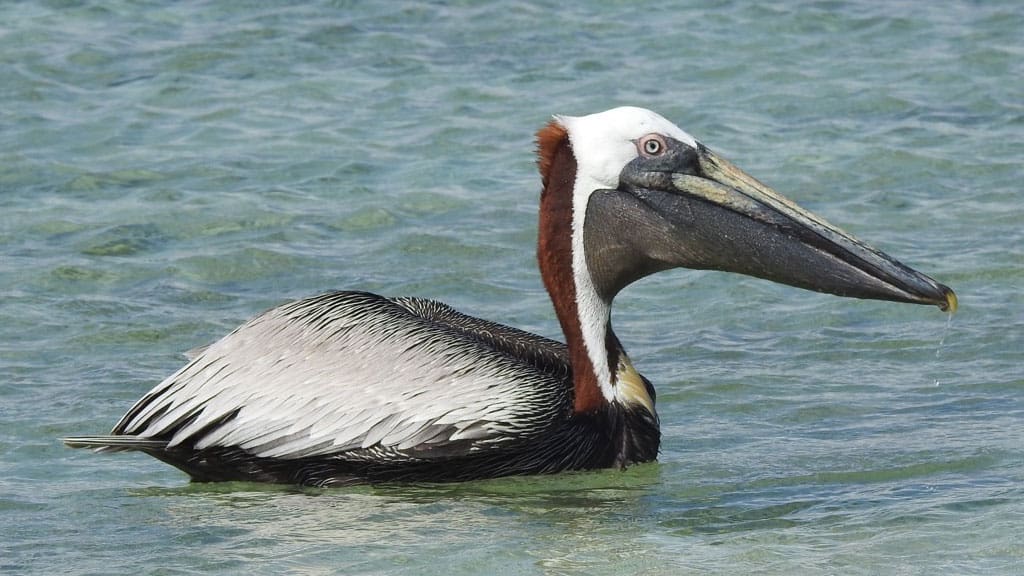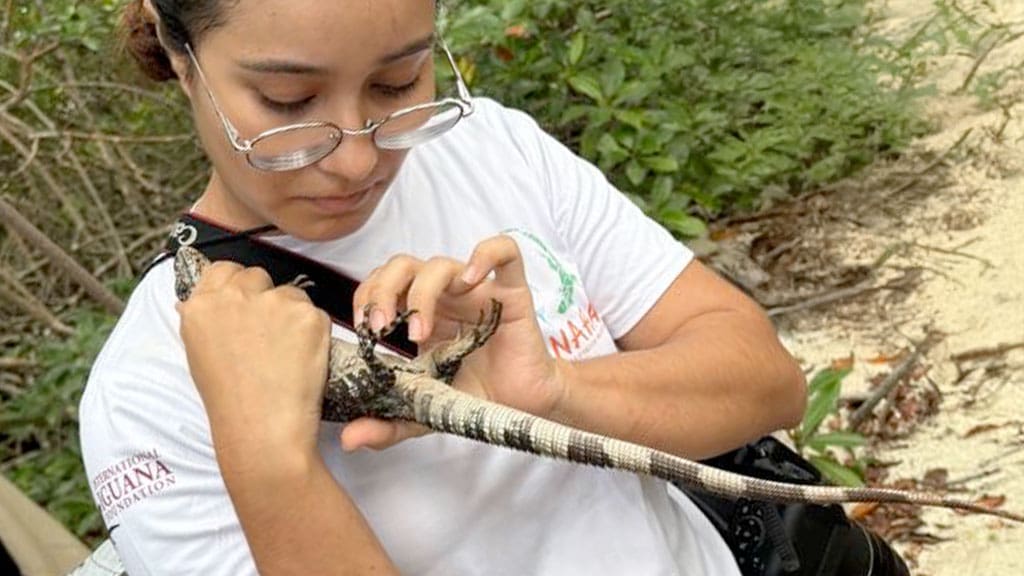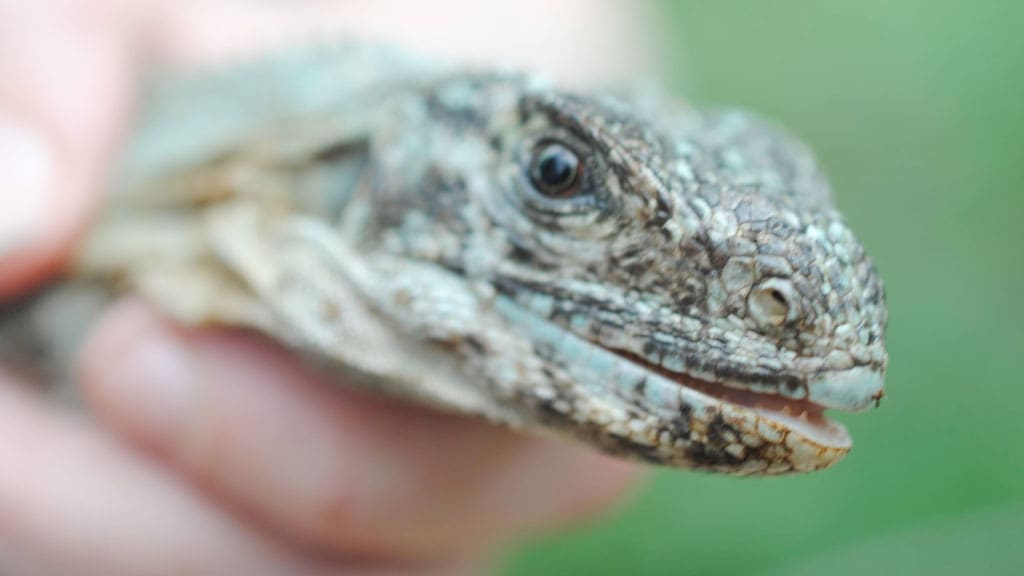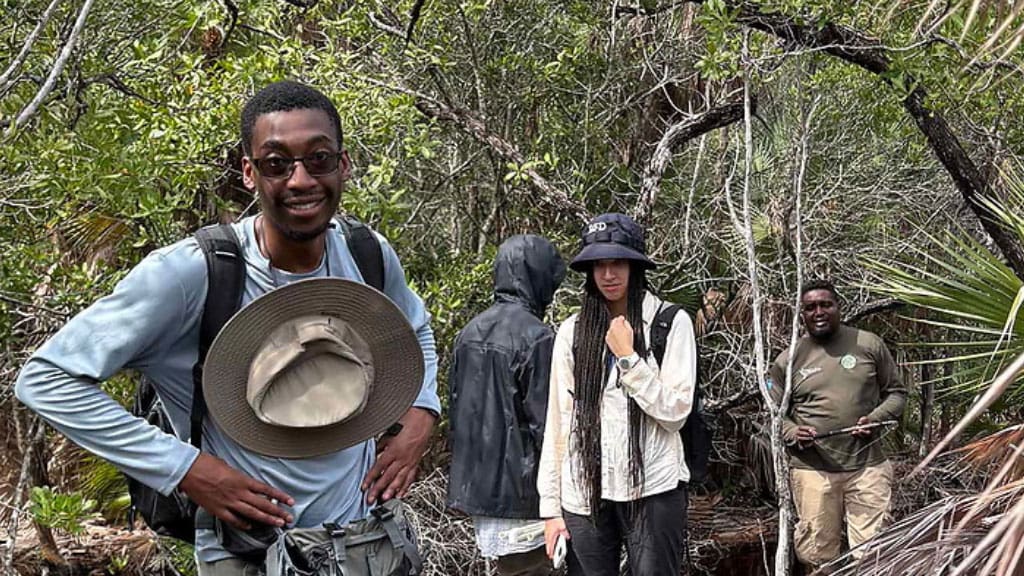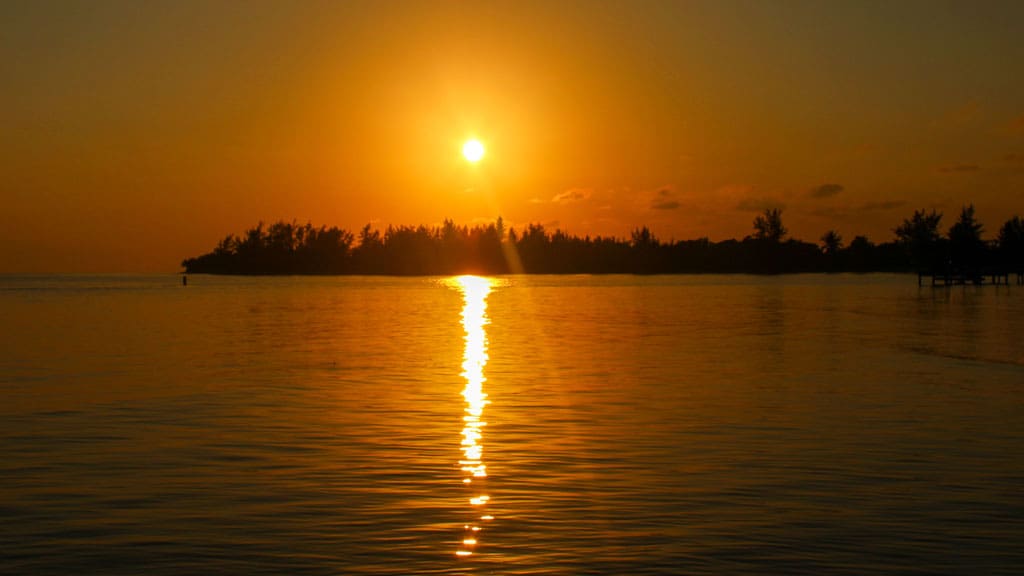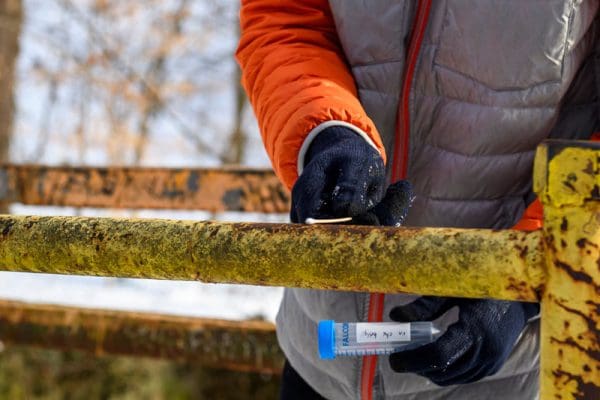Course title
Utila Island: Neotropical Ecology, Behavior, and Conservation
Instructor
Kirsten M. Bohn, Director, David S. Olton Program in Behavioral Biology
Course description
Tropical ecosystems are immensely diverse in organisms and behaviors. This course comprises an in-class component in the fall semester and then a 13-day component on site at Utila Island, Honduras, to experience and research tropical ecosystems and organisms. It includes lectures and preparatory activities on tropical ecology, behavior, island biogeography, and conservation. In Utila, it includes group field excursions that exemplify course concepts and practices. Students conduct field research, analyze data, and write a research paper on their taxa of focus under the supervision of Utila biologists and program faculty. Students gain first-hand experience in field research, ethology, and ecology.

Most of our undergraduates have never looked at organisms in their natural environments. It’s work you would do if you were a field biologist, a naturalist, or an ethologist.”
Kirsten M. Bohn
Student voices
“It was such a thrilling experience to be able to be immersed in the field of wildlife biology surrounded by fellow scientific minds who shared my enthusiasm for the natural world. As an engineer who is an avid wildlife photographer and staunch environmentalist, it was amazing to be able to put on a different hat and get a glimpse into all the excitement of the world of conservation biology.”
Aarushi Pant ’26, Biomedical engineering and behavioral biology
Research: Analyzed physical condition and sex ratios in spiny-tailed iguanas to inform and improve conservation targets
“Someone asked the question: How will studying these animals help humans? But not all research needs to be human-centered. Human-based research is important and has implications for human health and well-being. But there are so many animals that have existed and will exist even when humans aren’t around, and understanding how evolution has worked and how animals tailored their behaviors and physiology to their specific environments is still fascinating, interesting, and important to understand. We should understand how these animals interact, what’s important to them, and how we as humans can avoid impacting their environments.”
Ethan Oluwole ’25, Behavioral biology; pre-med
Research: Studied the effects of environmental differences on long-term adaptations in the behavior of two species of spiny-tailed lizards
“Beyond our specialized research, we were snorkeling, going into the coral reefs, identifying fish, being active field biologists. We walked through the mangroves and saw other wildlife, a boa constrictor eating an iguana, and tarantulas. I really recommend this trip as a way to get out there and apply things that you learn at Hopkins to the real world.”
Stephanie Donovan ’25, Behavioral biology and public health; pre-vet
Research: Surveyed the diversity and prevalence of endoparasites in reptiles and raccoons

